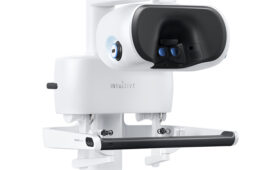
(Image from Unsplash)
The highly critical “Implant Files” report overseen by the International Consortium of Investigative Journalists skewers the medtech industry as a whole and singles out particular companies and regulatory agencies for more intense scrutiny.
The Implant Files is the second large-scale swipe at the medtech industry this year, following Netflix’s documentary, The Bleeding Edge. It includes six stories about medtech companies, the FDA and the European device approval system, a new International Medical Devices Database, resources for patients, and a list of its many international media collaborators. Investigators collected more than 8 million device-related health records over the course of the investigation, the majority of which came from the more than 5.4 million adverse event reports filed with the FDA over the past 10 years.
Medtronic was mentioned multiple times in the new series and was the subject of its own story, which recounts its rebound from financial tailspin to market domination in the space of a decade.
“In the 10 years since the company pledged integrity, governments on four continents have accused Medtronic of promoting unauthorized uses of products, defrauding government health programs, fixing prices, paying doctors for favorable studies and engaging in anti-competitive conduct,” the Medtronic-focused story says.
For its part, Medtronic said that it became aware of the ICIJ series over the past several weeks and that its first priority is patient safety.
“As we continue to assess ICIJ’s point of view and the news that is being generated around the world, we are most concerned that inaccurate, misleading media stories will fail to adequately represent the value that patients receive from medical device therapies and may cause unnecessary alarm and confusion among patients and healthcare providers, potentially leading to choices that may harm health,” the company said in a prepared statement.
“We will actively ensure that the facts regarding Medtronic and our industry are accurately represented, and that the value of our therapies and their true benefits are known,” the statement continued. “We will surely listen, respond to and engage with our stakeholders during this time of industry scrutiny, and use this critique of industry practices as an opportune time to reinforce our Mission and our steadfast commitments to honesty, integrity and service among our employees and health communities.”
Last week, just before publication of the report, the FDA outlined new regulatory goals including becoming “consistently first among the world’s regulatory agencies to identify and act upon safety signals related to medical devices,” which includes efforts to increase post-market oversight.
Wall Street analyst Larry Biegelsen of Wells Fargo called the Implant Files a “negative news campaign” that “does not break any new ground and mainly rehashes known safety issues.”
“While it’s early, The Implant Files could have an impact on the device industry in the US and outside the US given its scope, therefore, it will be important to monitor the reaction of regulatory bodies, physicians, patients, and manufacturers around the world over the next few months to assess the potential impact,” he added.
Regarding Medtronic in particular, Biegelsen wrote that the stories depict Medtronic’s prior recalls and product liability cases “unfairly, in our view” and “paint a negative image of the company. We believe the ICIJ will likely post additional device-related articles this week.”
The stories cited Biomet (now Zimmer Biomet) for the health hazards associated with metal-on-metal hip implants. The company also pledged its commitment to patient safety.
“We adhere to strict regulatory standards, and work closely with the FDA and all applicable regulatory agencies in each of our regions as part of our commitment to operating a first-rate quality management system across our global manufacturing network,” the company said in a statement. “Zimmer Biomet is focused on staying at the forefront of innovation and doing right by the millions of patients who rely on our products. We are proud of the work we do to improve the lives of people around the world every single day.”
Boston Scientific was largely spared the journalists’ scrutiny, except for the amount of money doctors received from the company (more than $50 million, according to the Centers for Medicare and Medicaid Services). The company cited “a strong safety record, with an average annual complaint rate across our entire product range of less than 0.15%, and an even lower rate of adverse events.” It also reiterated its commitment to patient safety.
“The outcomes experienced by the majority of patients were not reflected in recent reporting, and without sufficient context this could discourage individuals from seeking the care they need from a physician,” the company said in a statement. “While we can’t completely eliminate risk when complex technologies and patient conditions are involved, we aim to have the lowest possible rate of adverse events associated with our products, and never stop working to further improve the safety and effectiveness of our devices.”
Just days before the stories would appear online, the FDA announced Industry groups weighed in as well.
“Instead of a comprehensive look at both the challenges and the achievements of an industry that touches almost every human life, these stories counterfeit the life-changing and life-saving solutions delivered to billions of people worldwide,” Advamed shot back. “We should never discount any patient’s experience. But by magnifying the stories of only a few individuals, we overlook the overwhelmingly positive experiences of millions of others. We take seriously all reports of patient impact, and though the medical community can never completely eliminate risk, we always strive to improve our technologies and care delivery.”
Mark Leahey, president & CEO of the Medical Device Manufacturers Association (MDMA), responded in the same vein and defended the FDA.
“The ICIJ’s coverage of this dynamic industry is cherry-picking a handful of adverse outcomes at the exclusion of the nearly 200,000 medical devices currently on the market improving patient care. This only serves to frighten the millions of patients who benefit from medical technology innovation every day, while inaccurately portraying the rigorous regulatory pathways that are in place to ensure patient safety,” Leahey said in a statement.
“FDA, innovators, patients, physicians and all stakeholders work tirelessly to strengthen the innovation ecosystem that develops the cures and therapies addressing our nation’s – and the world’s – most difficult health care challenges. Simply put, the FDA’s regulatory framework is the gold standard in safety and efficacy.”
“While there is no medical procedure that can be performed without risk, Medical Alley companies always strive to innovate and produce the safest possible technologies that deliver better outcomes for patients,” wrote the Minnesota-based trade group. “Medical Alley looks forward to working with all health stakeholders to improve the products, the regulatory process and the press coverage of the medical technology industry and the patients whose lives depend on these products.”



![A photo of the Medtronic GI Genius ColonPro polyp detection system flagging a potential sign of colon cancer during a colonoscopy. [Photo courtesy of Medtronic]](https://www.medicaldesignandoutsourcing.com/wp-content/uploads/2024/04/Medtronic-GI-Genius-doctors-268x170.jpg)

Bad news sells papers! And since the purpose of publishing is to produce a profit, what else could be expected? One bad experience with one counterfeited product is all that a writer skilled in the art needs. Recall that in some businesses responsibility and integrity are missing altogether, and it IS ALL ABOUT THE MONEY!